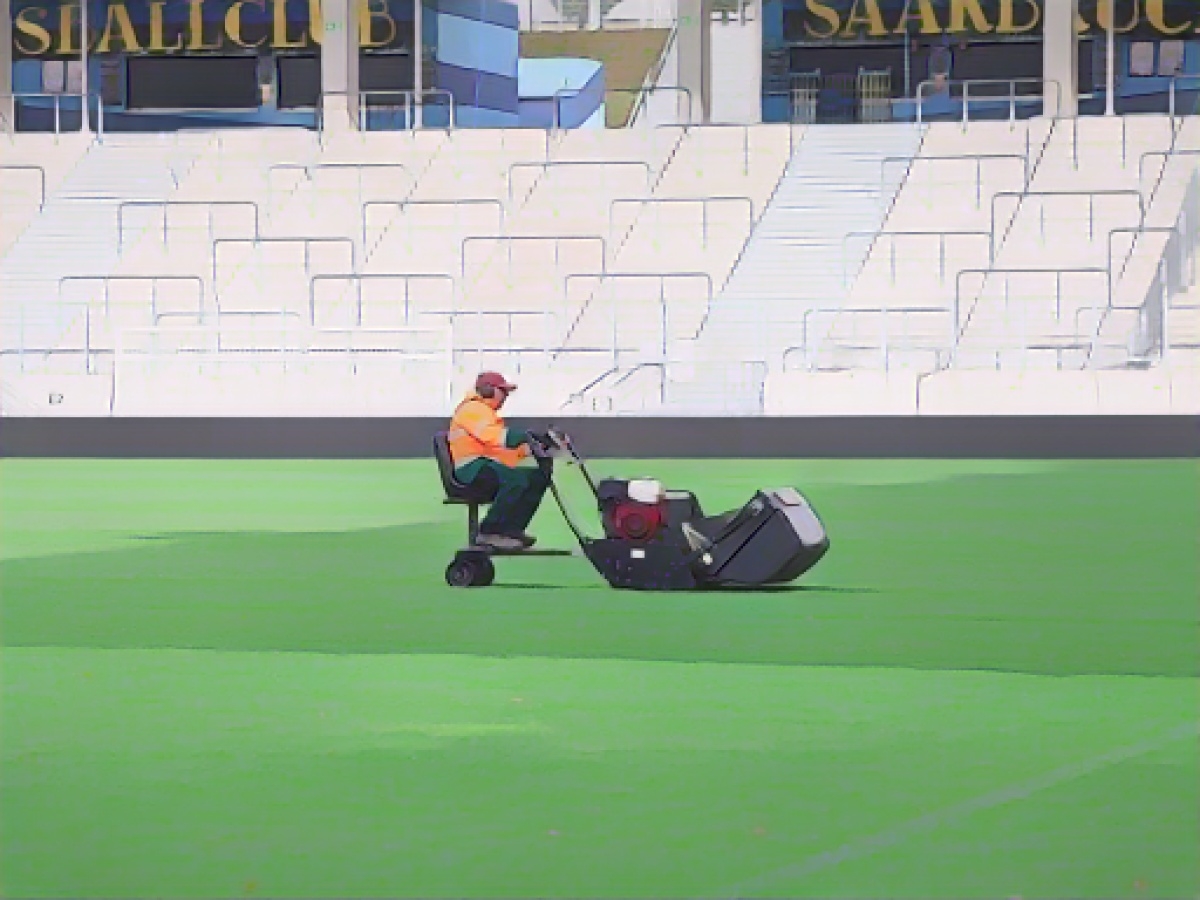Groundsmen on strike: "Are not second-class people"
Holger Schmidt is angry. The fact that Hamburg's finance senator Andreas Dressel (SPD), as chairman of the Tarifgemeinschaft der Länder (TdL), has recommended that cash-strapped public sector employees simply apply for housing benefit as compensation makes him extremely angry. "That's a cheek, simply a cheek. (...) We are not second-class citizens."
Schmidt is a groundsman for the City of Hamburg at the Vogt-Kölln-Straße sports facility in the Stellingen district and normally ensures that the games run smoothly. Normally. On this Saturday, he is wearing a yellow vest at the sports facility of the local gymnastics and sports club in the Niendorf district. Together with colleagues from all over the city, he has gone on a two-day warning strike - the first in Germany after the second round of collective bargaining for the public sector in the federal states ended without a result on Friday.
At first, the groundsmen stand around the grounds almost shyly and have to be called together in typical St. Pauli fashion. "Come on over, come on over. You'll get the same shit here as next door," can be heard from the speakers. But it is also something special for the employees. Because "for the first time in the history of the Free and Hanseatic City of Hamburg, the state sports groundsmen are on strike," says Detlev Meyer, groundsman at the Hammer Park sports facility. He is also a member of the collective bargaining committee for sports groundsmen.
His colleague from Sternschanzenpark, Burak Solat, says that he works 50 hours a week. "Weekends, public holidays, we're always there." The pay is far too low for that. Meyer also points to some rather strange employment contracts from the 1960s that were in place when he started work in 1999 and are still in use today. "I have a wife who works for me. That's what I signed up for and I get the money, not my wife." The same applies to the pension points. "It's bizarre, but that's how it is," says Meyer.
He assumes that around 50 to 60 percent of sports facilities and more than 200 soccer matches will be affected by the warning strike on Saturday. The strike was to continue on Sunday. Meyer, easily recognizable among the strikers thanks to his bright red woolly hat, admits that a single day of strike action is unlikely to make much of an impression on the employer. But there is still room for improvement, he warns: "It will probably have to really hurt first and perhaps even jeopardize the scheduling of the 2024 European Championships." In any case, the groundsmen are prepared for this.
The Hamburg Football Association (HFV) remains calm despite the threat of numerous match cancellations in Hamburg amateur soccer. "We want to take our time on Monday to get an idea of the situation," said HFV President Christian Okun. Only municipal sports grounds are affected. There are also many pitches that are managed by the clubs, explained Okun. The HFV had previously stated in a press release that there were sufficient make-up match days in the calendar.
The warning strike by the sports groundsmen is the beginning of a whole wave of work stoppages in the public sector of the federal states. The trade unions are demanding a 10.5 percent pay rise for employees over a collective bargaining period of twelve months, but at least 500 euros more. For the city states of Berlin, Hamburg and Bremen, the unions are also demanding a monthly bonus of 300 euros. The demands thus tie in with the wage agreement reached in April of this year for the federal government and local authorities.
The collective bargaining association of the German states, chaired by Hamburg Finance Senator Dressel, has already made it clear that it considers the demands to be far too high. "The 20.7 billion euro volume of the demands is unaffordable," says Dressel. The third round of negotiations has been agreed for December 7.
On Saturday, during the ongoing warning strike by sports ground attendants, the unions showed that they were not prepared to back down. While Schmidt, Meyer and Solat and their colleagues are still paralyzing sports facilities, Verdi announces the next warning strike for Tuesday - and it is likely to be much more massive. This is because the employees of state companies, specialist authorities, schools, district offices, job centers and the fire department will then be called to strike.
Federal states should consider the impact of their stance on tariffs and public service employees. The trade unions in federal states are preparating for a larger-scale strike, following the warning strike by sports ground attendants, affecting not only sports facilities but also state companies, specialist authorities, schools, district offices, job centers, and the fire department.
Source: www.dpa.com








